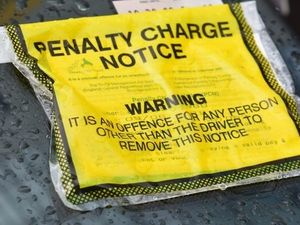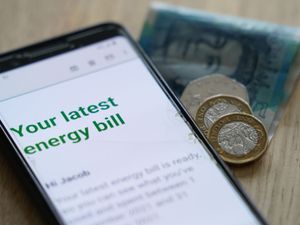Martin Lewis explains clever trick to extend EV road tax exemption until 2026
Martin Lewis has a clever tip to help you push back payments 🚗
Watch more of our videos on ShotsTV.com
and on Freeview 262 or Freely 565
Martin Lewis' team has revealed a smart trick to extend EV road tax exemption until 2026
EVs lose their road tax exemption in April 2025, but re-taxing early can delay payments
Owners of EVs registered after April 2017 should renew tax in March 2025 to maximise savings
Re-taxing is simple and can be done online using your car's registration details
Expensive-car tax also applies to EVs over £40,000, adding £410 per year for five years
Martin Lewis' Money Saving Expert (MSE) team has shared a clever way for electric vehicle (EV) owners to take advantage of a free tax loophole.
Currently, EVs are exempt from road tax (vehicle excise duty), but this exemption will end in April 2025.
But there’s a trick to extend the tax-free period by another year. While EVs are still rated at zero tax for now, it’s crucial to remember that you must still register your vehicle for taxation, even though no payment is required.
Read more: Car tax changes: what UK drivers need to know about new 2025 DVLA road tax changes

If you own an electric car, the amount you pay in road tax depends on when it was first registered:
Before March 31, 2017: £20 per year (based on 2025/26 rates).
Between April 1, 2017 and March 31, 2025: £195 per year (based on 2025/26 rates).
On or after April 1, 2025:
For new EVs registered on or after April 1, 2025 with a purchase price of £40,000 or more, an additional expensive-car supplement applies.
This costs £410 per year (based on current rates) and is payable on top of the standard rate from the second year onwards.
For example, if you bought a new EV for £45,000 and it was first registered on April 1, 2025, you’d pay £10 in tax for the first year. From the second year to the sixth, you’d pay the standard rate (£195) plus the expensive-car supplement (£410).
A personalised morning news round-up with NationalWorld Today - sign up here.
If you own a plug-in hybrid, you’ll likely have to pay some car tax - though typically at a lower rate than conventional petrol or diesel vehicles. Depending on your car’s emissions and registration date, this could be up to £195 per year.
Hybrids are also subject to the expensive-car tax, meaning if your vehicle originally cost £40,000 or more and was registered after April 1, 2017, you’ll need to pay an additional £410 per year for five years.
To find out exactly how much you owe, you can use the Government’s online car tax calculator for both new and used vehicles.
How to get free tax for an extra year on your EV
If your EV was first registered on or after April 1, 2017, make sure to re-tax it in March 2025. You can do this anytime before April 1, 2025, but renewing in March will maximise your savings.
This will delay your first road tax payment until March 2026, when it’s next due for renewal.
It doesn’t matter when your current tax expires - you can re-tax your EV at any time using your car’s registration number and the reference number from your V5C registration certificate (logbook) in your name.
The Government website may prompt you with, “Are you sure?” - simply confirm to proceed.
What do you think about these upcoming EV tax changes? Will you be using this trick to delay payments, or do you have any other money-saving tips for car owners? Share your thoughts in the comments section.





